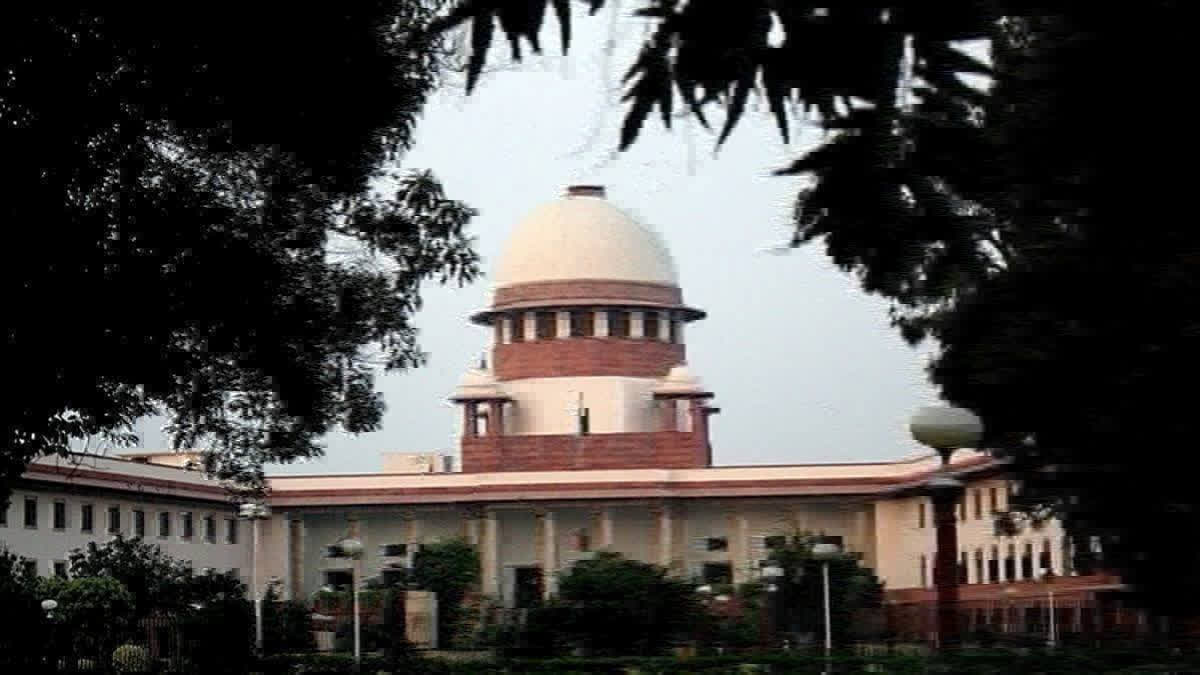New Delhi: The Supreme Court on Monday said the decision of the state to not provide reservation has to be based on some quantifiable data and valid reasoning, while ruling that the recruitment process initiated for the Class IV posts by the Deputy Commissioner, Palamu, by an advertisement on July 29, 2010, was in violation of both the legal precedents and settled law.
A bench of Justices Pankaj Mithal and Sandeep Mehta said arbitrariness in public employment goes to the very root of the fundamental right to equality. While no person can claim a fundamental right to appointment, it does not mean that the state can be allowed to act in an arbitrary or capricious manner.
The bench said the state is accountable to the public at large as well as the Constitution, which guarantees equal and fair treatment to each person, and the public employment process thus, must always be fair, transparent, impartial and within the bounds of the Constitution. "Every citizen has a fundamental right to be treated fairly and impartially, which is an appendage of the right to equality under Article 14 of the Constitution of India. A violation of this guarantee is liable to judicial scrutiny as well as criticism”, it added.
The apex court said: "The position of law is settled that though there is no fundamental right to claim reservation as Articles 16(4) and (4-A) of the Constitution of India are in the nature of enabling provisions only and do not mandate the State or its instrumentalities to provide reservation in every selection process but inspite thereof, the State's decision to not provide reservation has to be based on some quantifiable data and valid reasoning".
The bench said public employment is a duty entrusted by the Constitution with the State, and added, therefore, it becomes imperative that the rigours of Articles 14 and 16 are not ignored by the state in relation to the matter concerning public employment.
The bench said that the entire recruitment process was initiated for the Class IV posts by the Deputy Commissioner, Palamu, by an advertisement on July 29, 2010, which was in violation of both the legal precedents and settled law. The bench said advertisements failed to mention the number of posts available for selection are invalid and illegal due to lack of transparency.
The bench said it is imperative that the state must specifically mention in the advertisement the total number of reserved and unreserved seats. However, if the State does not intend to provide reservation, in view of the quantifiable data indicating adequacy of representation, this aspect must also be specifically mentioned in the advertisement, said the bench.
"The advertisement dated 29th July, 2010, is completely silent on the aspect of total number of posts and the number of reserved quota and general quota posts. We are of the view that if the State chooses not to provide reservation, that decision must also be conveyed through the advertisement along with the afore-mentioned lists of inclusions," said the bench.
In the present case, a division bench of the Jharkhand High Court on November 7, 2019, had confirmed the directions passed by a single judge to the state government to prepare a fresh panel of selected candidates without giving any opportunity of hearing to the selected candidates.
The bench dismissed an appeal by Amrit Yadav, appellant employee, holding that he cannot be allowed to claim prejudice from the fact that he was neither impleaded nor heard before the issuance of a direction affecting his service.
"In our view, since the very selection and appointment of the appellant-employee was a nullity in the eyes of law, the single judge committed no error in directing for preparing a fresh panel of selected candidates without hearing the candidates who were likely to get affected," said the apex court.
"It is, therefore, clear that a beneficiary of a back-door procedure cannot claim proper treatment as per law when they come at the receiving end. In the present case, the appellant-employee, who had been appointed under the advertisement dated 29th July, 2010, does not have any right on the subject posts once it is concluded that the advertisement is itself void and is declared illegal and unconstitutional," said Justice Mehta, who authored the judgment on behalf of the bench.



